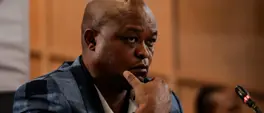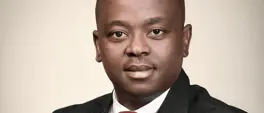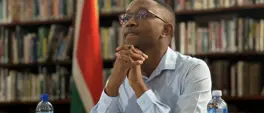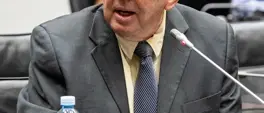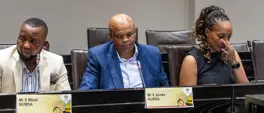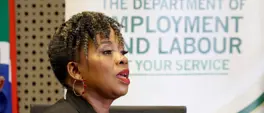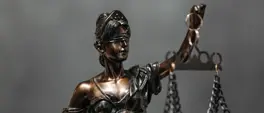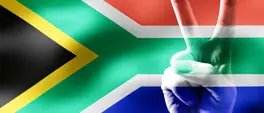JAMIL F. KHAN | Creating space for honest conversation can strengthen South Africa’s future
Jamil F. Khan
5 September 2025 | 9:42'Most people are watching the preparations unfold from afar, with a healthy level of scepticism, not completely dismissing the opportunity for all citizens to be heard by the government and other stakeholders.'
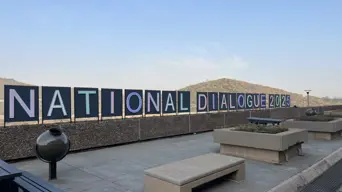
UNISA is hosting the two-day convention at its main campus in Pretoria. Picture: Thabiso Goba/EWN
The merits of a National Dialogue continue to be debated between those who believe we have not yet scratched the surface of our wounding as a nation, and those who believe that the time for talking has passed, and action must be prioritised. For both of these streams of thought, the cost of the dialogue is of concern, as we have become accustomed to high-cost, low-impact interventions from our government.
Most people are watching the preparations unfold from afar, with a healthy level of scepticism, not completely dismissing the opportunity for all citizens to be heard by the government and other stakeholders. In our engagements with government, a “trust deficit” has been cited to explain how little faith we have in our government to do the right things. However, as Indlulamithi Scenarios Trust chairperson, Prof Somadoda Fikeni clarified in a recent Reference Group workshop for the trust, a deficit of trust is a symptom of a “truth deficit”. Since a national dialogue is meant to get us talking, those participating should go in protected with the language to name things.
The Indlulamithi Scenarios Trust published three scenarios in 2024 that forecast various possibilities for the society we could be living in by 2035, depending on the choices we make now. The scenarios include: Hadeda Home, a "recrimination nation”, Vulture Culture, a “desperation nation” and Weaver Work, a cooperation nation.
With Hadeda Home being where we have been, and Weaver Work being where we hope to go, the recent discussion at this workshop surfaced a sense that we are within the Vulture Culture. We are facing a time, here at home and globally, where opportunism and blatant dishonesty characterises many government institutions. If a national dialogue is to go ahead, which it most likely will, we must ensure that the truth is guarded, while fully aware that the involvement of politicians likely compromises truth.
Our government is one of broken promises, not always for a lack of trying, but mostly dishonesty of never having intended to honour those promises. Retention of political office and its associated power has been a primary goal of politicians and political parties, which have been secured through the performances they offer voters on the election campaign trail. It is a form of trickery, which by many definitions requires a manipulation of the truth, at best, and a denial of it, at worst. In any engagement with our current state, we must confront the reality that our social contract rests on a truth deficit, and we must take collective responsibility for our own commitments to the truth.
Our government officials have often proven to be ill-informed, callous, and inefficient in their attempts at mediating such immense processes, relying on political posturing over empathetic leadership to steward dialogue. The national convention in preparation for the dialogue proved that holding conversations that aims to include such vast groups of people, across multiple and deeply complex issues, requires skill, attention, and empathy. A process devoid of the human resources to manage human hopes, fears and aspirations will fail one of the most necessary endeavours largely abandoned by our post-democratic euphoria: an opportunity for South Africans to truly hear each other.
Through our warranted collective scepticism, those of us who choose to engage the process must understand what is at stake. What we have the potential to come away from this national dialogue with, depends on how committed we are to protecting the truth. While some may insist that the solution to South Africa’s problems is simply action and implementation, I am not convinced that we know what we are acting on. This rush to action invites a familiar superficiality in how we deal with things that leads us to low-impact solutions because we have not given enough time to hearing the ask.
The National Dialogue is not inherently pointless, as some justifiably fed-up citizens have noted, but it must be facilitated with a sincere commitment to facilitating meaningful conversations that give space to lived experience-led testimony, and expert-led knowledge to come together to create a compact of truth that allows the very important human work to be done in a strategic space. It is a myth that resolving our collective trauma is of lesser importance than action towards economic growth or infrastructure.
The reality is that with any solution, we still require ordinary South Africans to work together across sectors to achieve its goals. In a society where our relationships across group dynamics are still plagued by the misinformation which was once the official social script of our colonial past, our prejudices and subjection to social divisions will continue to impact our ability to achieve real change.
If this National Dialogue is to achieve anything meaningful, our collective trauma, which is directly related to the economic outcomes of inequality, must be addressed. To do this, we need a strong force of honest, intellectually robust engagement that does not cower to political power nor prejudiced disagreement. There is certainly a place for think tanks such as Indlulamithi to make a meaningful impact, especially as guardians of truth. It may be that as we go through the process of a national dialogue, we are presented with a final chance to recalibrate our relationship with the truth.
Perhaps our collective problems have less to with our inability to find or implement solution, and more to do with our refusal to face the truth of what we are solving.
Our responsibility to “look above the trees” has never become more apparent. Without this ability, this dialogue may very well fail its objectives, but more devastatingly, a dialogue that disturbs and dislodges nothing to situate our future firmly within the Vulture Culture scenario may reveal that our biggest affliction as a nation is our discomfort with the truth.
If we cannot transcend our commitment to weaponising decorum as a muzzle for the truth, if nothing else, we may find the one answer that matters in a dialogue seeking to diagnose our national condition: we have collectively agreed to a lie and called it a triumph.
Jamil F. Khan is an award-winning author, doctoral critical diversity scholar, and research fellow at the Johannesburg Institute for Advanced Study.
Get the whole picture 💡
Take a look at the topic timeline for all related articles.


